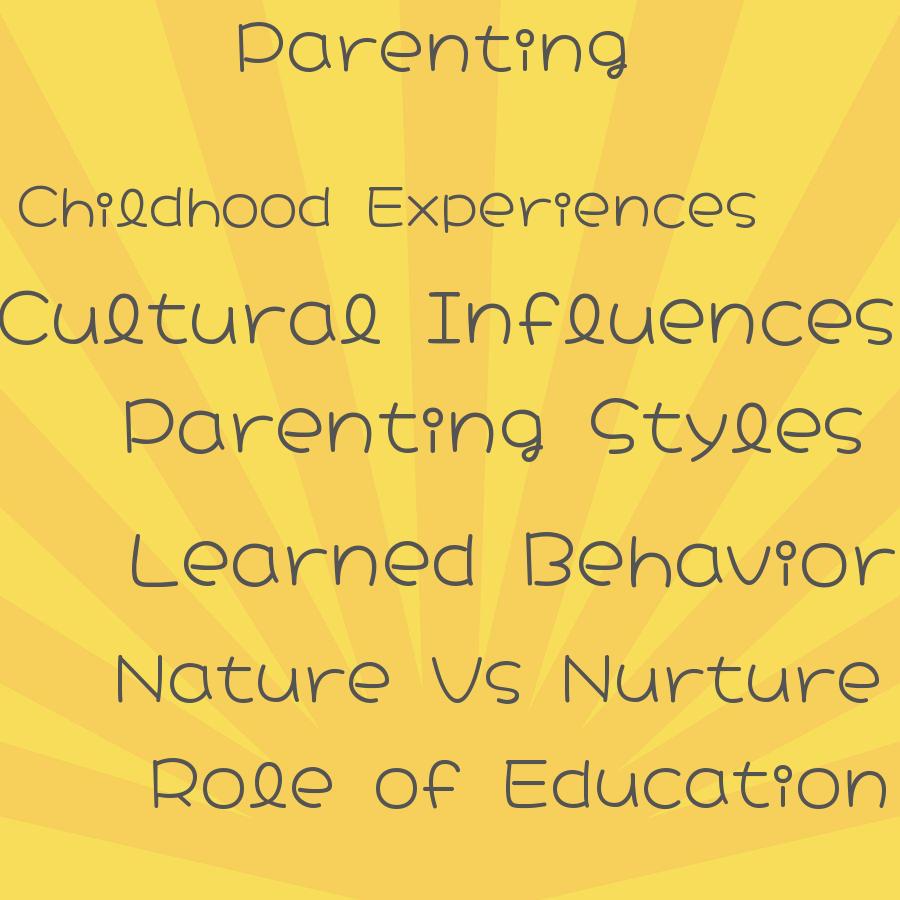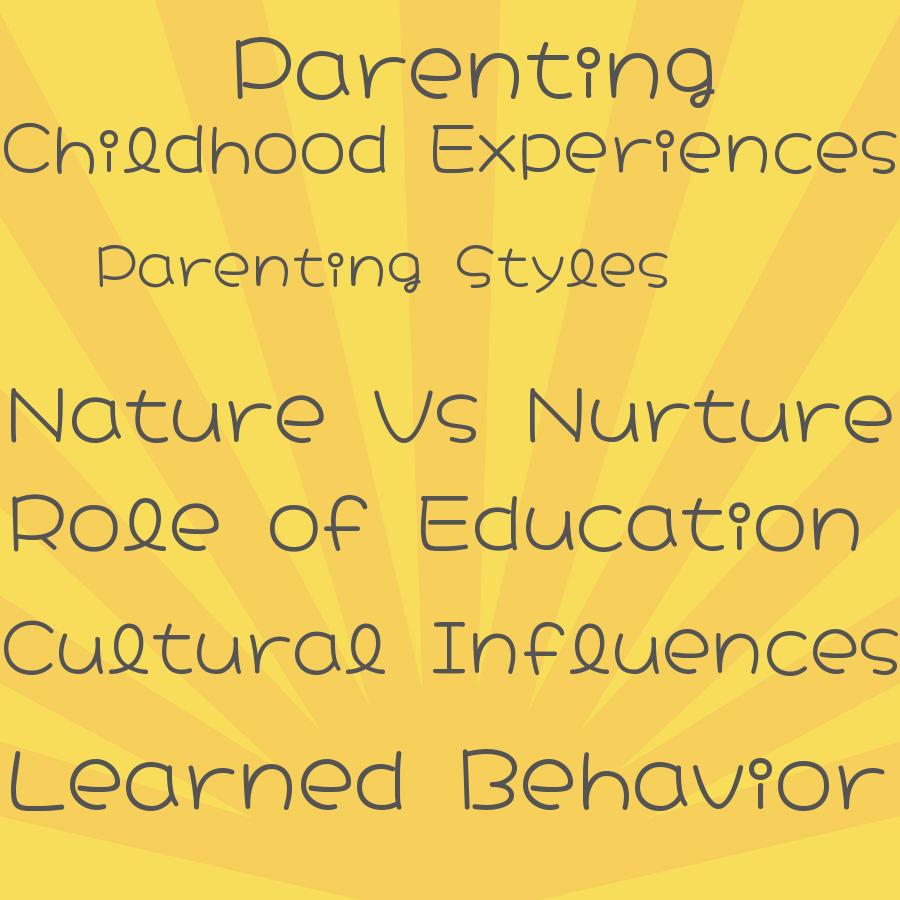Yes, parenting is a learned behavior that is influenced by various factors such as culture, upbringing, personal experiences, and societal norms.
As a child, I always marveled at how my parents seemed to know exactly what to do in any given parenting situation. From comforting me when I was upset to disciplining me when necessary, they always seemed to have the perfect response.
As I grew older and became a parent myself, however, I realized that parenting is not as instinctual as it may seem. In fact, it’s something that requires learning and practice just like any other skill.
So, is parenting a learned behavior? This question has been debated by experts for years. Some argue that there are certain innate qualities that make someone a good parent while others believe that anyone can learn how to be an effective caregiver with the right tools and resources.
In this article, we’ll explore both sides of the argument and take a closer look at what it really means to be an effective parent. So grab your coffee or tea and settle in for some thought-provoking discussion on one of life’s most important roles – being a parent!
Here You Will Learn:
Nature Vs Nurture


When it comes to the debate of whether parenting is a learned behavior or not, the concept of nature versus nurture often arises. Nature refers to our genetic makeup and innate qualities while nurture refers to how we are raised and the environment in which we grow up.
While some may argue that certain individuals have an inherent ability to be good parents due to their genetics, others believe that it’s more about how they were raised and what they’ve learned over time. In fact, research has shown that parenting styles can be passed down from generation to generation as a result of both genetic factors and environmental influences.
However, regardless of where one falls on this spectrum, there’s no denying that being a parent requires learning new skills along the way. From changing diapers for newborns all the way through navigating teenage years with your child – each stage presents its own unique challenges.
As I reflect on my own experiences as both a child with parents who seemed like natural-born caregivers and now as an adult raising my own children – I realize just how much I’ve had to learn along the way. While some things do come naturally (like wanting what’s best for your child), other aspects require practice such as effective communication or discipline strategies.
So while there may be elements of nature at play when it comes being an effective parent- ultimately becoming one is something you must learn through experience!
Parenting Styles
When it comes to parenting, there are many different styles that parents can adopt. Some may be more authoritarian, setting strict rules and expecting obedience from their children.
Others may take a more permissive approach, allowing their children to make their own decisions and learn from the consequences.
As I navigated my own journey as a parent, I found myself drawn towards a style known as authoritative parenting. This approach emphasizes clear communication between parents and children while also setting reasonable expectations for behavior.
But regardless of which style you choose or what your natural tendencies might be when it comes to parenting, one thing is clear: effective caregiving requires learning and practice just like any other skill.
Through trial-and-error (and plenty of mistakes along the way), I’ve come to realize that being an effective parent means constantly seeking out new information about child development and adjusting my strategies accordingly. Whether it’s reading books on positive discipline or attending workshops on emotional intelligence in kids – there’s always something new to learn when it comes to raising happy healthy humans!
Childhood Experiences
As I delved deeper into the question of whether parenting is a learned behavior, I began to reflect on my own childhood experiences. Growing up, my parents were always present and supportive in every aspect of my life.
They provided me with love, guidance, and discipline when necessary. Looking back now as an adult and parent myself, it’s clear that their parenting style was shaped by their own upbringing.
Research has shown that our childhood experiences play a significant role in shaping our approach to parenthood. Children who grow up with nurturing caregivers are more likely to become nurturing parents themselves while those who experienced neglect or abuse may struggle with providing adequate care for their children.
However, this doesn’t mean that individuals can’t learn how to be effective parents even if they didn’t have positive role models growing up. With the right resources such as books on child development or classes on effective communication skills for families – anyone can develop the skills needed for successful parenting.
So while our childhood experiences do shape us in many ways including how we approach parenthood – it’s important not to let them define us completely when it comes time for us ourselves becoming caregivers!
Cultural Influences
When it comes to parenting, cultural influences play a significant role in shaping our beliefs and behaviors. For example, in some cultures, children are expected to be obedient and respectful towards their elders at all times while others prioritize independence and self-expression.
Growing up in an Asian household myself, I was taught from a young age that obedience is key. My parents believed that strict discipline would help me become successful later on in life.
However, as I became a parent myself and interacted with other parents from different backgrounds, I realized that there isn’t one “right” way to raise children.
Cultural influences can also impact how we view certain aspects of parenting such as breastfeeding or co-sleeping. In some cultures around the world co-sleeping is the norm while others believe babies should sleep alone for safety reasons.
Ultimately though culture plays an important role; it’s important for us as individuals to recognize our own biases when it comes to parenting styles so we can make informed decisions based on what works best for our families rather than blindly following tradition or societal expectations.
While cultural norms may influence how we approach parenthood initially but ultimately being an effective parent requires learning new skills over time through trial-and-error experiences coupled with resources like books or classes which provide guidance along the way!
Role of Education
When it comes to parenting, education plays a crucial role in shaping one’s approach. While some may argue that certain qualities like patience and empathy are innate, there is no denying the fact that learning about child development, effective communication techniques and positive discipline strategies can greatly enhance one’s parenting skills.
As I navigated my own journey as a parent, I found myself turning to books on child psychology and attending workshops on positive discipline. These resources not only helped me understand my children better but also gave me practical tools for handling challenging situations.
In fact, research has shown that parents who participate in educational programs tend to have more positive interactions with their children compared to those who do not receive any formal training or support. This highlights the importance of investing in parental education as a means of promoting healthy family dynamics.</p>
However, it is important to note that while education can provide valuable insights into effective parenting practices; every child is unique and requires individualized attention from their caregivers. Therefore it’s essential for parents also learn how they could tailor these approaches according to their specific needs of each child.
So while some aspects of being an effective parent may come naturally; there are many skills which require intentional effort towards learning through various sources such as books or courses – ultimately making parenting indeed a learned behavior!